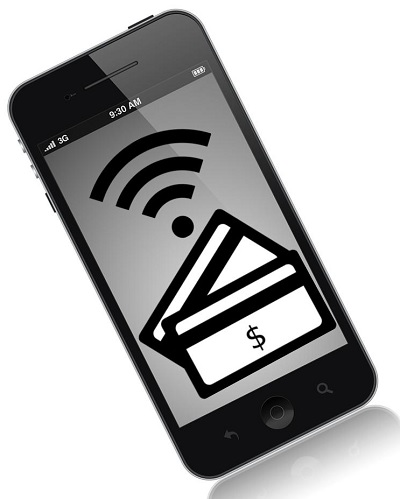Denny |
February 11, 2015
The massive corporation is using this offline shopper data collection to target mobile ads.
Unilever is now using location based marketing techniques to be able to better understand how appealing shoppers find its brands while they are in store, so that they can later send mobile ads that will be relevant to those individual consumers.
The company will be using iBeacons to be able to glean the information about the smartphone using consumers.
The idea is that while this type of location based marketing could encourage purchases at the point of sale, it can also be used for a broader purpose. This is primarily to use the technology to lower the consumer acquisition cost by providing each individual with content that has been customized to a consumer’s individual interests, wants, and needs.
Unilever entered into a location based marketing partnership in order to be able to test this concept.
 In this geolocation technology using effort, Unilever is working with Glimr, a data specialist firm, and Mindshare. This strategy steps away from the “traditional” use of beacons, which have been conducted by other companies and that have focused nearly exclusively on driving performance, in favor of an effort to build the company’s brands.
In this geolocation technology using effort, Unilever is working with Glimr, a data specialist firm, and Mindshare. This strategy steps away from the “traditional” use of beacons, which have been conducted by other companies and that have focused nearly exclusively on driving performance, in favor of an effort to build the company’s brands.
In the pilot in Sweden, consumers who visited a food truck that was Knorr branded were given the opportunity to sample its latest flavor of soup. Those shoppers were then retargeted with a mobile ad the next time they launched the Aftonbladet Swedish newspaper app. The typical display ads that had been displayed within that app were often replaced with coupons that were designed to provide shoppers with a reminder of the campaign, and to underscore the idea that Knorr is a brand that is modern and that is keeping up with the things that people care about the most, right now.
At the moment, the company hasn’t revealed any intentions to expand the location based marketing program to other regions, such as the United Kingdom or the United States. However, Unilever has indicated that it will be moving its tests using iBeacons into major supermarkets, over the first half of this year.
Samsung rumored to be ready to reveal new payments service along with its new devices
Samsung is gearing up for the unveiling of its new Galaxy S6 smartphone, as well as several other devices, but it’s the company’s push into the mobile payments space that may generate a veritable tidal wave of hype. Samsung is set to host it’s Galaxy Unpacked event at the beginning of March, and many industry analysts believe that the company will showcase its new mobile devices during that time. They also suggest that Samsung will announce its new mobile payments system, called Samsung Pay.
Galaxy S6 may support Samsung’s entry into the mobile commerce sector
Samsung is expected to reveal the new Galaxy S6 at its upcoming event, as well as the Galaxy S6 Edge, which features a dual-edge display. These devices will be the next step in the evolution of Samsung’s already rampantly popular Galaxy brand and they are expected to support the company’s potential bid for dominance in the mobile payments field. Samsung Pay is rumored to be based on technology developed by LoopPay, a mobile commerce firm that has recently partnered with Samsung.
Samsung Pay may make use of technology developed by LoopPay
 Reports suggest that the new payment service will take advantage of a non-swipe fingerprint scanner that will be featured in the Galaxy S6. This will allow users to place their finger on the device’s Home button to unlock the phone and authenticate mobile transactions. The new service from Samsung will also use a tokenization system that has been developed by LoopPay. Tokenization has become quite popular in the mobile payments space as it removes the need to use a consumer’s financial information directly, replacing this data with digital tokens.
Reports suggest that the new payment service will take advantage of a non-swipe fingerprint scanner that will be featured in the Galaxy S6. This will allow users to place their finger on the device’s Home button to unlock the phone and authenticate mobile transactions. The new service from Samsung will also use a tokenization system that has been developed by LoopPay. Tokenization has become quite popular in the mobile payments space as it removes the need to use a consumer’s financial information directly, replacing this data with digital tokens.
Tokenization could make mobile payments more secure
A tokenization system could give Samsung Pay a competitive edge over other payment services. Because mobile commerce deals in the trafficking of financial information, it has become a popular target for malicious groups that seek to exploit this information. With digital tokens, there is no direct use of financial information, and these tokens can help make mobile payments much more secure than they are currently.
 In this geolocation technology using effort, Unilever is working with Glimr, a data specialist firm, and Mindshare. This strategy steps away from the “traditional” use of beacons, which have been conducted by other companies and that have focused nearly exclusively on driving performance, in favor of an effort to build the company’s brands.
In this geolocation technology using effort, Unilever is working with Glimr, a data specialist firm, and Mindshare. This strategy steps away from the “traditional” use of beacons, which have been conducted by other companies and that have focused nearly exclusively on driving performance, in favor of an effort to build the company’s brands.
 Reports suggest that the new payment service will take advantage of a non-swipe fingerprint scanner that will be featured in the Galaxy S6. This will allow users to place their finger on the device’s Home button to unlock the phone and authenticate
Reports suggest that the new payment service will take advantage of a non-swipe fingerprint scanner that will be featured in the Galaxy S6. This will allow users to place their finger on the device’s Home button to unlock the phone and authenticate 